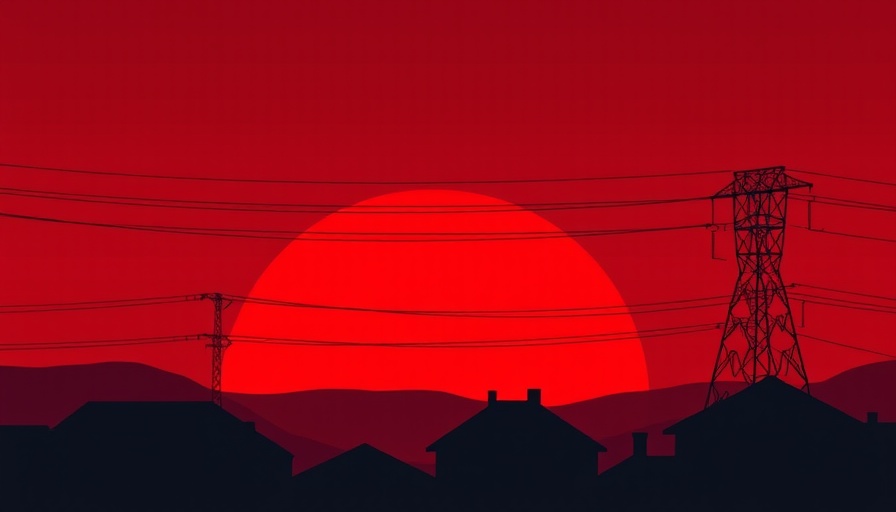
Electricity Tariff Shock Leaves Lagos Community in Struggles
In Akiode, Nigeria—a community on the fringe of Lagos—a sudden spike in electricity tariffs is transforming the daily lives of its residents. These changes have dramatically impacted both their financial stability and quality of life, highlighting a stark divide in how energy policies affect different socioeconomic groups.
Understanding the New Electricity Tariffs
The Nigerian government introduced a revised electricity tariff system in 2024, with a threefold increase that imposed significant changes. Under this new structure, communities like Akiode are now classified under Band A, requiring them to pay ₦225 per kilowatt. Despite 22 hours of electricity, the cost is debilitating for residents who are struggling to balance everyday expenses. Mr. Blessing, a local business owner, discusses how his electricity expenditure soared from ₦10,000 a month to sometimes ₦10,000 weekly, translating to diminished funds for essential purchases like food.
Repercussions for Low-Income Communities
Though designed for affluent areas capable of affording higher electricity rates, the band reclassification has paradoxically captured low-income neighborhoods like Akiode. Classification depended solely on their energy capacity, rather than the financial capability of its residents, which deepens the divide between policy intent and lived reality. As Chinedu Amah from Spark Nigeria notes, this logistical classification does not consider the pressing financial burdens on residents.
The Human Cost of Energy Policy Decisions
The impact on Akiode is not just financial but human. The Nigeria Bureau of Statistics highlights that a staggering majority of households struggle with food security, exacerbated by the increased cost of utilities like electricity. For residents like Toyin, a local tailor, the tariff hike forced difficult choices over basic living needs, which has led to increasing community tensions and uncertainty about the future.
Future Predictions and Trends in Energy Policy
With the escalations in energy costs and its profound impact, a future shift in policy or innovative energy solutions becomes crucial. Tech entrepreneurs might find opportunities in developing alternative clean energy technologies to mitigate such crises. Spark Nigeria's focus on clean energy solutions highlights how innovations could reshape access to energy and offer affordable, sustainable power sources to those most in need.
Historical Context and Background
This isn't Akiode's first bout with power problems; during the 2020 COVID-19 pandemic, the area faced a three-month outage that only perpetuated the community's resilience but exposed systemic flaws in energy distribution. With a history of coping without electricity and reliance on costly generators, the community now faces a new form of energy struggle that demands innovative and equitable solutions.
 Add Row
Add Row  Add
Add 




Write A Comment